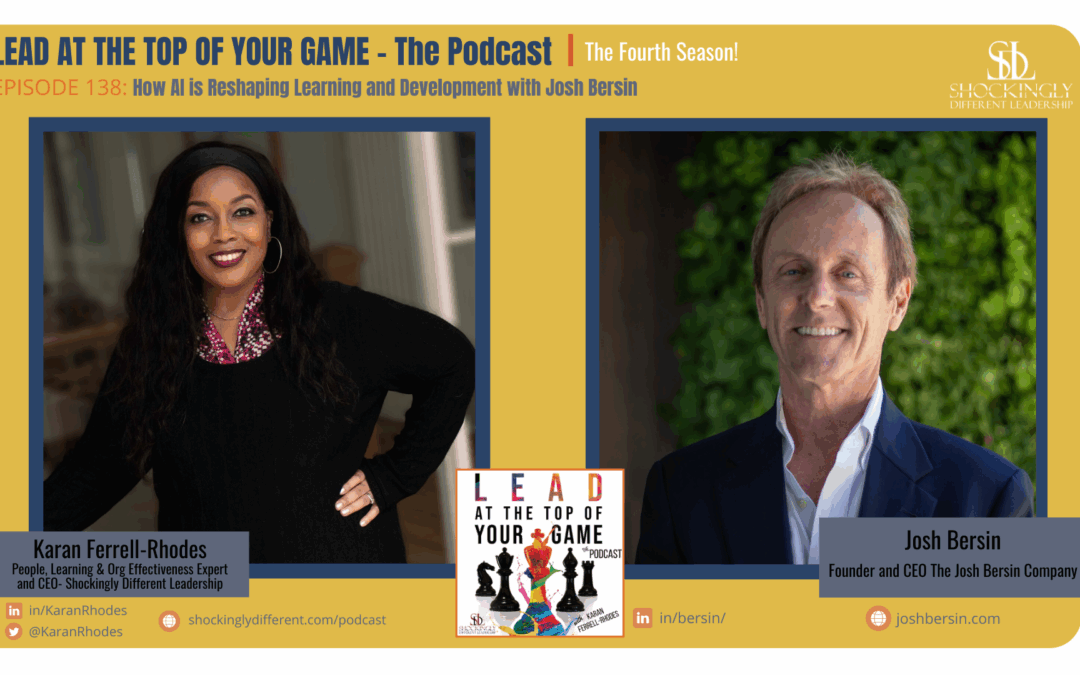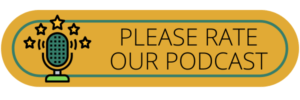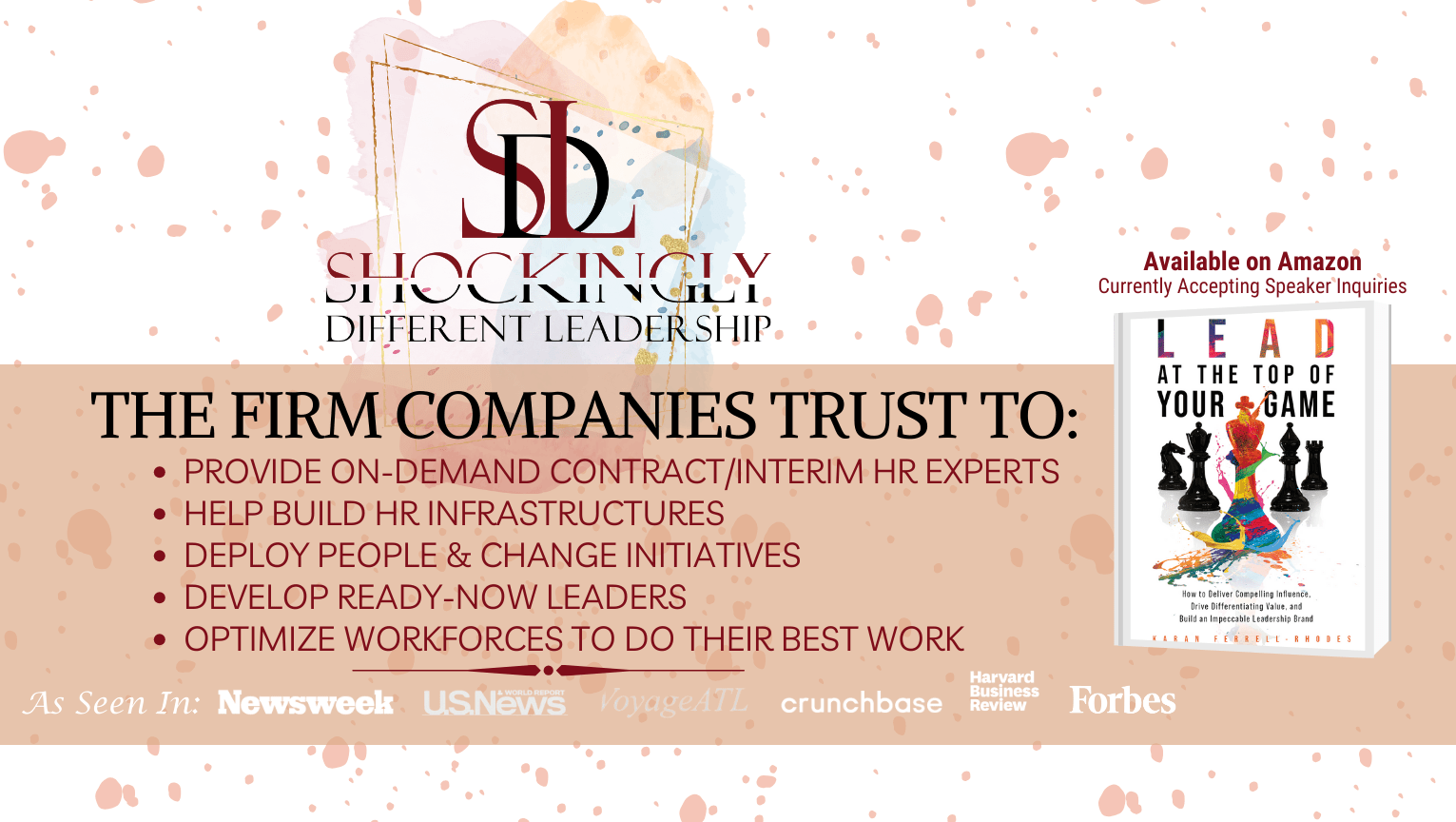IN THIS EPISODE, KARAN FERRELL-RHODES INTERVIEWS JOSH BERSIN.
Josh Bersin, founder and CEO of the Josh Bersin Company, discusses the transformative impact of AI on leadership and organizational development. He highlights the current experimentation phase in AI adoption, emphasizing the need for strategic focus and internal development. Bersin shares insights on leveraging AI to enhance productivity, drive revenue growth, and streamline processes. He also notes the importance of integrating AI with existing systems and the potential for significant business re-engineering over the next decade, stressing the need for a culture of change and strategic decision-making to maximize AI’s benefits.
Josh Bersin is the founder and CEO of The Josh Bersin Company is a global leader in HR research and advisory, known for its service-first culture and innovative AI platform, Galileo. The company empowers organizations and individuals with up-to-date research, benchmarking, and practical guidance to help them navigate HR challenges and drive transformation.

Posted by
SDL Media Team
Rather view our video podcast?

WHAT TO LISTEN FOR:
- How AI is transforming HR, leadership development, and business processes
- The importance of experimentation and strategic focus when adopting AI tools
- Challenges HR leaders face in upskilling teams and managing change
- The difference between incremental and revolutionary uses of AI in L&D
- What risks should boards consider when overseeing AI investments?
- How to identify high-value AI projects that align with business goals
- The evolving landscape of HR technology vendors—will there be a shakeout?
- What role does strategic decision-making play in successful business transformation?
“Where are you going to focus your AI investment?”
FEATURED TIMESTAMPS:
[00:36] Introduction of Josh and focus on AI in leadership development
[04:23] AI as a transformational technology
[08:13] Roadmap for upskilling teams in AI
[12:02] Signature Segment: Josh’s entry into the LATTOYG Playbook: Evaluating true AI value beyond vendor hype
[12:20] Navigating the crowded AI vendor landscape and distinguishing between incremental and revolutionary tools
[15:09] The evolving role of L&D professionals as AI changes content creation and learning processes
[19:27] Advising companies to align AI projects with business strategy
[22:27] The challenge of change management and the risk of companies paying lip service to AI transformation
[26:12] Overview of the Josh Bersin company’s services and the Galileo AI platform
[30:26] Signature Segment: Josh’s LATTOYG Tactic of Choice: Leading with Strategic Decision Making

ABOUT JOSH BERSIN
Josh Bersin is a global HR industry analyst, speaker, and published author in the areas of human resources, technology, learning, and organizational leadership. Regularly cited as one of the leading HR and workplace industry analysts in the work, his work centers on the need to improve employee engagement and experience and support the CHRO to be more effective at their job.
A firm believer in the strategic role of human resources, Bersin is one of the profession’s most vocal advocates for the importance of HR in the ever-changing world of work. He is credited with inventing now-commonly accepted core workplace concepts like “learning in the flow of work,” and “The Big Reset.”
LINKS FOR JOSH:
- Website: https://joshbersin.com/
- LinkedIn: https://www.linkedin.com/in/bersin/
ADDITIONAL RESOURCES FOR YOU:


Episode Sponsor
SDL is the go-to firm companies trust when needing to:
- supplement their in-house HR teams with contract or interim HR experts
- implement leadership development programs that demonstrate an immediate ROI and impact on the business

Episode 138 | How AI is Reshaping Learning and Development with Josh Bersin
Josh Bersin 00:03
You’ve now got to figure out across all of the little experiments going on in your business function or your company or your HR department, where is there activity that looks like it’s really going to add a lot of value, and where do we have strategic either cost or upside, that we can focus on?
Voiceover 00:03
Welcome to the “Lead at the Top of Your Game” podcast, where we equip you to more effectively lead your seat at any employer, business, or industry in which you choose to play. Each week, we help you sharpen your leadership acumen by cracking open the playbooks of dynamic leaders who are doing big things in their professional endeavors. And now, your host, leadership tactics, and organizational development expert, Karan Ferrell-Rhodes.
Karan Rhodes 00:36
Hello, my superstars. This is Karan, and welcome to another episode of the lead at the top of your game podcast, we are just tremendously honored to have a really special guest on today’s show. We have a Josh Bersin who, for those who are in the HR industry, is a well known figure and very renowned for all of his research and leadership and books and you name it, but he is the founder and CEO of the Josh Bersin company, and Josh is frequently cited as a global HR industry analyst and leader. He’s a renowned speaker, published author, and he has multiple specialties, for example, in the areas of human resources, technology, learning and organizational leadership, among just a few. He’s very involved in partnerships with a lot of the big thinkers who are looking at the future of work. And I’m so honored to have him on today’s show. We can add a million topics we could talk about, which we will but we’re going to focus a little bit heavily on AI in leadership development and leadership execution. So welcome to the podcast, Josh!
Josh Bersin 01:55
Thank you, Karan. I’m very excited to be here and look forward to talking about a lot of interesting things.
Karan Rhodes 02:02
Same here, same here. Well, as you know, I’ve already told you in our pre chat, I’m a long time follower and fan, so I would be remiss if we did not ask one of our signature questions. We were trying to get to know our guests just a tad bit more on a personal side. So for just as much as you feel comfortable, would you mind giving us a sneak peek into your life outside of work?
Josh Bersin 02:30
Yeah, I’m in my late 60s, so I do what most people my age do. I try to get a lot of exercise. I go for walks. I live in a beautiful community in Oakland, California. I have two grown children who happen to live very close to me, so I see them a lot. One of them works in our company, so that’s wonderful. I’ve been married for almost 40 years to the same person.
Karan Rhodes 02:54
Congratulations. That is rare,
Josh Bersin 02:59
and that’s pretty much my I bike ride, I travel a lot, and read a lot, and think a lot,
Karan Rhodes 03:10
You and me both, but so we have that definitely in common. And yes, congratulations on long term your marriage, and it sounds like you have a fantastic family, and you’re living life to its fullest, so that’s awesome. Well, I’d love to turn the tables, if you don’t mind, Josh, and we’ll kind of dive into our conversation. As I said, we have many different ways we could go, but as everybody does you know, AI is truly the hot topic these days, although I always remind my listeners, AI has been around for 1520, years in some way, shape or form, but it’s got to be the current buzzword in the world of business and work and specifically to organizational development and, You know, leadership and how companies are thinking about leveraging it in the world of work. I’d love you to start out just a little bit by sharing some of the top trends that that you are seeing in this area, and then we’ll delve into some of the particulars and others a little bit
Josh Bersin 04:23
Sure. Well, it’s a very interesting, transformational technology compared to many of the things in the past. Because it isn’t really a deterministic tool, like a piece of software that does X, Y or Z. It can do many, many things in an unpredictable way. So what’s going on in companies is a massive experimentation process to buy AI tools and platforms and learn how to use them to improve, initially, to improve productivity, but in the long run, to improve company growth and. And time to market and quality of service and value, but it’s so early in this new era, it’s only a couple years old, that it’s not always clear to companies exactly where AI is going to play. So all of the people I work with in HR are right in the middle of this pressured environment where the CEO and the CFO have basically said, we’re spending all this money, we’re gonna shrink the size of the company, because everybody’s gonna be so productive. Now, go out there, go out there and do it, whatever it means. So so we have, you know, lots and lots of tools and Mini Apps and systems and agents being developed by vendors, but also a lot of internal development. And a lot of the research that we do is showing that many of the big use cases of AI are going to be built by internal people, not necessarily by vendors, because this is such a easily developed environment. So it’s pretty amazing. And we have our own strategy. We’ve sort of put an AI platform across our whole company called Galileo, and it’s completely changed what we do. So I can see the potential in virtually every part of human capital, every part of HR, every part of business for that matter. So it’s early days. I mean, I think we’re talking about a decade of of significant business re engineering that’s going to be going on, including the way companies operate, you know, at their very core, as these systems mature,
Karan Rhodes 06:33
I totally agree. I’m seeing the same thing as well, and I hold quite a few executive huddles with CHROs and Chief Learning officers. And we usually vote have the have them participants vote on the topics that they want to dive deep in and when we have our huddles. And by far, AI has always been one of the top topics of conversation, because, to your point, the leaders that are in charge of the human capital agenda, you know, which are your CHROs or heads of HR, no matter what their you know, maybe VP or what have you, in a certain size company, they are struggling. And to your point, they said their executives are looking for them to really be more strategic on how AI is going to affect their workflows, their staffing models, even to the point of like pricing, you know, their products and services. And the last time I checked, we in HR, really weren’t educated in school on that. So you’re having to learn how to build a plane and fly it at the same time. So I’m curious your your perspectives on how you’re coaching executives to upskill their teams in AI, in the base knowledge, and then how to apply and infuse it in a way that will help positively adapt how they do work.
Josh Bersin 08:13
Well, it’s the roadmap is becoming very clear, because we’ve worked with so many companies on this now. So the beginning of this is to give people familiarity with AI, and that means giving them access to the tools so they can learn and share and play around and experiment. And that’s a big application of Galileo, of our system, which is designed for HR and learning people. But a lot of companies have given their employees copilot or chatgpt or one of the other ones, and you have to encourage them to play with it, and then, don’t, you know, make them feel that they’re going to be put out of a job if they don’t learn how to use it, because then they will be intimidated by it. Yeah, so once that experimentation process starts, you find a lot of dead ends where people try things and they don’t work, and then they stop. And so you’ve now got to figure out across all of the little experiments going on in your business function or your company or your HR department, where is there activity that looks like it’s really going to add a lot of value, and where do we have strategic either cost or upside, that we can focus on. Because if you think about all of the little use cases of AI, improving productivity, let’s suppose we improve the productivity of a little group of people, analytics, people that have 10 people, right? And we say, Oh, now we only need eight. Well, that’s not really the reason to do it. It’s really the reason to do it is because they can do 10 times as much analysis and come up with much, much better decisions than before, not the fact that we’re reducing the number of people. For example, one of the big banks we’re working with, you know, and banks have lots and lots of paper based processes. That can be automated. The CHRO, who happens to be the chief strategy officer, basically said, Look, I don’t mind all these experiments, but I’m only interested in two things. Number one, I want to improve the revenue growth of our wealth management business. So I want us to use AI to make it easier for wealthy individuals to manage their portfolios and bring more money to us. And then I want to, you know, simplify the account opening process across 130 countries, which takes up this huge volume of administrative work. And she said, I’m getting our senior people to focus on those two big, you know, projects, and then the rest of this, we’ll see what happens. So, so it’s kind of a weird situation where there’s a lot of opportunities and a lot of low hanging fruit, as they say, but some of it’s not going to have a massive ROI, and some of it is and so, but you won’t know that until you’ve started experimenting and learning what the what the technology is capable of and what you’re ready to do versus not the other district, the only distraction, I would add that’s really difficult because of, you know how hot this is, is all of the vendors are overselling everything.
Karan Rhodes 11:14
Yes, they are.
Josh Bersin 11:16
I mean, they are. It’s workday. Oracle SAP, all of them, the recruiting vendors. I mean, they all have wonderful things, and each of which is uniquely designed in its own way. But you know, when they try to convince a company that this is going to, you know, revolutionize this process, it’s rarely does it do that unless they’ve been working on it for many years, and only a few of these vendors have really been building AI systems for multiple years. A lot of them have sort of thrown stuff together in last two years. So that’s a big distraction. And then, of course, HR departments can’t ignore what the big vendors tell them, because that’s their incumbent system. So you have to sort of wade your way through that. But it’s, it’s, there’s a lot of upside here, and and, you know, and I think most companies, if they stick with it, are going to find just massive company and business benefits out of these technologies.
Karan Rhodes 12:10
I think so as well. And you’re right, they’re just so many vendors out there. I mean, you can, it’s full time job screening the number of vendors when you’re looking for a specific solution.
Josh Bersin 12:20
Let me one more thing on vendors in L and D, for example, which is the one we’re working on the latest our Galileo learn thing. There are vendors that automate the old way of doing it with AI, and there are vendors that do it the new way. And so as you look at AI tools, you might want to scratch your head and say, Is this a tool that’s going to make it a little bit better for us to do it the way we’ve always done it? Or is this a tool that’s going to allow us to revolutionize the way we’re doing this and have orders of magnitude improvements? And you’ll find both. And the first ones are going to be the easiest to understand, but they might have a much lower ROI, because I think what’s going to happen in a lot of these use cases is we’re going to have to, we’re going to be redesigning the way all of these business processes work. And I can give you examples if you want, but yeah, please. I’m interesting. Well, let me take L and D for example, because I know that’s one of the areas you focus on. Yeah. So in L and D, there’s a very arcane, complex process for building training programs. We do performance analysis, we interview people, we identify subject matter experts. We build an instructional plan, we design a course, we build a course, we test it. We add a lot of assessment, we put a skills model around it. We publish it into the LMS, we launch it, we cross our fingers and hope people like it, yeah, we try to track them. Well, that entire process, no matter how fast you do, it, is filled with flaws. I mean, maybe people don’t even want a course. Maybe they just want to ask a question, yeah, maybe the course isn’t relevant to them, except for a small piece of it in AI, I mean, and there are tools that will automate building a traditional course, but that’s actually not on the other hand, if you really want to do it in the sort of revolutionary way, you’d use a pure play AI platform like ours or others, and You would take the source material and you would let the system generate the content, and then the employee or user would be able to ask the system questions and take a course and talk to a tutor and get assessed and do many things generated by the AI platform. And now your mind goes, Wait a minute, what’s my job? If the system’s doing all of that, what do I do? Well, you’re now, you as an L and D professional, are a consultant and a business advisor. You’re looking at the performance problems, you’re you’re you’re working closer to the business. So I just finished a big webinar on this, and I think l and. People are going to be recreating their careers in a significant way, as opposed to building courses faster.
Karan Rhodes 15:09
I agree, and I think this, they’re going to have an additional lens that they haven’t had before, because not only are they concerned with their own kind of AI platforms, but they’re going to have to be more closely working with the business, because the business is going to have their own tools. Exactly. How do you make sure that you’re bringing the right types of development to the organization, or the right like with the systems like you, what you all are doing with Galileo? How do you make sure that it’s going to be value add onto the bottom line, and that you’re staying on top of what all the other
Josh Bersin 15:48
No, in fact, you know, the way I see it, I mean, I think within a very short period of time, every business person is going to have an agent of their own, whether it’s an LLM or, you know, tool. So if you’re building something and you’re expecting people to leave their system and come to your system, you’re probably going to be behind the eight ball because they already have a system. Yeah, you have to feed them with the AI that they already have in their business function. And your whether it’s content or advice or whatever, the HR stuff you’re working on has to go meet them there. So it’s in some ways much, much more powerful for us as HR people, but we can’t. We have to be careful. We don’t build something that’s sitting on an island and then everybody ignores it.
Karan Rhodes 16:33
There you go, and then they’re upset because of the investment to bring it on board. Judge, I’m curious, Josh, in your opinion, and if you don’t know, this is totally fine, but because there’s so many vendors and solutions and bills and whistles out there, in your opinion, do you think that it’s going to Shake out where there will be maybe the top five or seven vendors in every area of expertise versus the, you know, 1000s of vendors that are fighting for customers. Now my question is, do you think it’s going to evolve to the point that the big players are going to be the ones ultimately.
Josh Bersin 17:23
No, I don’t think the big.
Karan Rhodes 17:25
No?
Josh Bersin 17:25
First of all, I don’t as much as I love worked in an SAP and all them, I believe their markets are somewhat limited because they have a lot of legacy infrastructure they have to maintain. I think it’s going to be, I think we’ve got a year, unless there’s a recession, by the way, if there’s a massive recession, the number of vendors just shrinks
Karan Rhodes 17:43
Goes away. Don’t jinx us now, Josh,
Josh Bersin 17:44
No, the economy just went up by 3% this month. So this quarter, we shouldn’t complain. I think for a while there’s going to be lots and lots of new things. But what these new vendors realize later, once they come into the HR market, is the HR market is incredibly big and competitively, competitive. Yes. So even though you may have invented something that you think is the world’s best assessment tool or leadership coach or whatever it may be, good luck selling it when the person you’re selling it to just saw 10 of these from somebody else. So what happens is, a lot of the well funded, you know, kind of early stage vendors stumble into this market. They don’t find their niche, and then they become reasonably successful, and then they get acquired. It’s a little early for that to happen, because everybody thinks they can build this stuff from scratch, but eventually there’ll be a shakeout, and there’ll be, you know, five to 10 major players in each of the categories of HR. Right now, there’s probably 50 in each category, and new categories being created, by the way,
Karan Rhodes 19:02
Every day, right? Almost all new categories. So in you, when you coach your clients and consult with them, how do you or what do you suggest when they’re building for today? But also have to have an eye out for how to build and be competitive for tomorrow.
Josh Bersin 19:27
Well, what we try to do is, we don’t we start with, you know, sort of the big question about the business, is it growing? Is it shrinking? Are you going into a new market? Are you going to new product? You know, what are you trying to do as a company? And because that’s where the most return on investment is going to be, or are you just trying to reduce costs? Or, you know, why are you trying to do this particular project? And sometimes they don’t know. A lot of times, the people doing the project have just been told to do the project. They’re, you know. They don’t have the big contacts, but we force them to really verbalize that. Then we go back and we look at what their current situation is in terms of what technology they have, and what the culture and sort of organization of the company is, and so in very quick period of time, because we do this so much, we can kind of tell them. Here’s some of the things you should watch out for, and here’s some of the areas where you should focus. I guess in some ways, we’re kind of like a really, really good exercise coach who can diagnose why your knee is hurting pretty quickly, as long as we know it’s actually your knee and not your leg. So so we go through that, you know, sometimes in a few hours or a week or two, or a workshop of some kind, and then when it gets into actually doing the, you know, the project or the work, we usually rely on a lot of our research, and we let them educate themselves. And we’re very much an empowering kind of a company. We don’t, we don’t, we don’t implement systems for companies. We help them do it the best possible way they can, and give them ongoing advice on how to get a stay out of trouble. And then along the way, we try to give them access to Galileo and our learning so they can continue to educate themselves, because we want to empower them, and this is their solution. It’s not ours. So the more we can help them be successful in their process, the better for them, the better for the company, and the better for us, because we can leverage our expertise across more companies. So that’s kind of the process, and in AI, sometimes it’s funny. I mean, a lot of companies are saying the right words, but they’re not making the right commitments. And one of the biggest obstacles that companies have in AI projects is a culture of change, because you’re going to change a lot of jobs, you’re going to probably move some people into new roles. Managers are going to be disrupted, and a lot of companies push back on all that, and so they sort of sit there and they, they pretend like they’re doing the AI work, but when it comes down to the tough decisions, they never make them. That’s right. And we, you know, we’re pretty honest with companies about what we think is going on.
Karan Rhodes 22:16
Yeah. But you know, historically, as you and I both know, historically, companies don’t do well with change overall change management. So to
Josh Bersin 22:27
We’ve done and we’ve done studies to prove that change is good. So sometimes we have to sell people on why it isn’t so scary. I mean, actually, not changing is probably riskier than changing in most cases.
Karan Rhodes 22:42
Absolutely. You’re spot on. That is a drop the mic moment. If I haven’t heard of one, you know you mentioned about, you know, you know trouble, you know. And people don’t assess how they’re going to leverage AI in their overall business strategy. And one of the things that I do is I am also a board advisor on talent governance for a lot of companies. And one of the hot topics at the board level is AI, as well as cybersecurity and other things. But AI is huge right now, and as boards are trying to understand how to have sound oversight on the risk of not implementing AI in their business processes appropriately, they’re kind of going around around like the Tasmanian devil. And so I’m interested in understanding from you if there may be one or two risks that if from a board perspective, that you would recommend that they include, as they do, their oversight in those in the AI area.
Josh Bersin 23:57
I mean, I think the big risk, other than technical risk, I think the big risk is companies paying lip service and thinking this is going to be easier than it is, and buying a bunch of tools and expecting to turn them on and suddenly, miraculously, the company’s transformed. And so if I were on the board of, you know, company, I mean, we talk to companies all the time that have bought a big license to say, service now, and they got sold this whole transformation thing, and they’re like, well, we kind of bought it, but we’re not sure, you know, we don’t really know what to do with it. And, I mean, I think the board should regularly ask the senior leaders, where are you going to focus your AI investment, what are the big projects that you think are really going to add value? And you know, not everything is, you don’t have to do it all at once. You know, work on automating something that’s really got high value call centers is a good one, right? Could be recruiting if you’re, you know, if you’re, if you’re, like, a. A food service company like Chipotle, and you’re growing like crazy. Recruiting is very, very strategic, yeah, because if you can’t get people to work fast enough, you can’t open enough restaurants, you can’t sell enough burritos, that’s right? If you’re Boeing, you’re not worried about recruiting, right now, you’re worried about something else,
Karan Rhodes 25:18
Exactly, survival,
Josh Bersin 25:22
Right. So that’s what I would do as a board, is make sure that the AI money is going into something that’s starting to generate return, because then the company is going to learn from that project. Aha, we figured out how to do this here. Let’s do it there. Let’s do it here. Let’s do it there. So there’s a lot of muscle being built in transformation and and the AI technologies in companies. And I think you have to look at it as as you know, don’t disperse your activities too much, so you don’t build that muscle.
Karan Rhodes 25:56
Mmm hmm. I agree. Now one thing I did not do justice, Josh, and I want to give some air time for you for that, as if you can share with our listeners a little bit more about your company in your areas of specialty and how you provide value to organizations.
Josh Bersin 26:12
Yeah. I mean, we’ve been doing research and advisory and case studies and vendor analysis in HR for you know, close to 30 years all over the world, mostly larger companies. And our original business model was a membership model, where people would buy access to all this content, and then we would support them with maturity models and assessments and education and tools. And over the years, people said to us, we want you to build more education. We want you to educate us. So we built an online academy for HR, and that was about seven or eight years. We had almost 75,000 people in there and but we weren’t able to keep it up to date, because it’s things change so fast, and we’re doing studies all the time. So along comes AI, and we realized we could deliver our, in a sense, our information and advisory services through an AI agent. So we developed a tool called Galileo, which has all of our advisory research and benchmarking and vendor information in it, as well as a lot of other data. And so what we do is we still have corporate client memberships, but the members get access to Galileo. And you can buy Galileo as an individual. You don’t have to be a big corporate member to get it, and you can get access to all of our materials. And then, if you’re in, if you’re in a corporate, you know, organization, we formally introduce ourselves. We set up advisory meetings with the goal of helping the company advance some of their most strategic issues. But sometimes it’s a matter of, you know, selecting a vendor or meeting another company in your industry that’s doing something similar. So we have lots of groups that we bring people into to meet other group people. So we’re basically in the business of leveraging all of these good information sources we have to help every single company transform in the direction they want to go at the rate they want to go. Some companies are very ambitious and have all sorts of great ideas. Some companies, you know, they just want to do one little thing at a time. I want to know where they are. So we’re fine with that. And that’s really our business. And, you know, I’ve done it for so long that I you know, we all love HR and learning this is what we do. Yeah, we’re we have a very much of a hospitality culture. We really train the employees in the company to be service first. We’re not trying to sell a tool or a website to people. And it’s been great. It’s been wonderful. We get just incredible feedback from people. We learn from all of our clients, and we share that with other people. So it’s been great. We’re also very global now, so we have people in Europe work in the Middle East, and it’s quite fascinating.
Karan Rhodes 29:00
It is, and I want to give you kudos for the longevity, as I mentioned, the followed you for years.
Josh Bersin 29:09
Well, the longevity is, Karan, I’m turning 70 next year.
Karan Rhodes 29:16
Oh! 70 is the new 30. Josh, You need to think of it that way. Well, Josh, I can’t let you sneak out of here without asking you our signature question that we love to ask our guests and for my newbies and the podcast, our company did some research on the tactics of high performing Leaders, on leadership execution. And out of our research came seven buckets of activities that we do. We call them tactics, but they’re really, truly activities that they focus on and do well. And all seven are equally as important. You use them at different times based on what you’re going through, but usually there’s one or two that pop out for you. And. So Josh was so kind to share that strategic decision making really resonated with him, and the way we define it is just as you would expect, it’s making great decisions yourself or leading a great decision making process with your teams or other people you’re collaborating with. So Josh curious minds, would love to know why strategic decision making really resonated with you?
Josh Bersin 30:26
Well, I mean, there’s two big reasons. I think it’s important to sort of think about and understand you know how this works in your company and your team. Number one is every project or initiative or new idea that you dream up is much harder than you thought. It’s always harder than you think it is. It takes time to get to market. It takes time to get people aligned at times. Takes time to make sure you understand the contours of the solution you’re building. So if you don’t have a good strategic focus on the areas of investment and the focus areas you’re going to work on. Many of your projects are going to languish because they’re not getting enough investment. This whole idea of putting the wood behind a few arrows, not too many. I’ve learned this over and over and over that it takes sometimes two years to really launch something new in a highly successful, scalable way, especially in a big company. It may feel like you did it in a month, but you really don’t get the benefits or the rollout over time. So that’s number one. Number two is the process of making strategic decisions, to me, is one of the most fascinating parts of being in business. You have to think to yourself, as a person or as a company or as a team, where are we trying to go? What is going on in the environment that’s going to affect where we want to go? In the technology sector, in the competition, in the regulatory market, in the economy, you have to sort of see into the future. And somebody has to do that, because otherwise, if you’re just running your whole life day to day, something’s going to come along and surprise the heck out of you, and you won’t be ready for it. So strategic decision making forces you as a team to hypothesize about the future, and you’re going to get a lot of different ideas and different opinions with but that’s the value of it. So, you know, I think every company and every team should do this on a regular basis, not every single day, right?
Karan Rhodes 32:35
Right.
Josh Bersin 32:36
Periodically, and then big bets where you all agree you think you will be best positioned. And the other thing that I’ve learned over many years in business is where you want to go depends, is oftentimes dependent on where you have been. You have a culture. You have a certain way of doing things. You have certain strengths. If you suddenly decide you want to be completely different, you’re probably not going to be that successful at it. So the strategic decision making process also forces you to take stock of what you have and what you can bring with you to this new place you’re trying to go versus, you know how much we want to try to go someplace we’ve never been before. So I just think it’s an a critical strength and capability inside companies that somebody should be doing, you know, relatively regularly, not constantly, but you know, at least once or twice a year.
Karan Rhodes 33:35
That’s right, and may and be serious about it. You know, be intentional about, you know your process and and what you want to accomplish, just like you said, I think that’s fantastic. Well, as I mentioned to you earlier, I could talk to you for four hours, but unfortunately, we’re coming close on time, but I want to make sure before you leave, you share with our listeners, we’ll have, of course, everything your bio and links in their show notes. But I’d love to give you a little air time to share where folks can find you and your company with they want to learn more.
Josh Bersin 34:11
Very easy to find joshbersin.com is the, is the main sort of entry website. Our clients have a different website. Go to getgalileo.ai and you can learn all about Galileo, or you can access Galileo through the Josh Person website. We’re on LinkedIn and most of the other social medias systems, and we go to every single conference we can go to. So if you want to sit down and talk to any one of us, including me, I go to most of the HR tech conferences, and we’re always available to talk to people. So you know, there’s lots of places to learn more.
Karan Rhodes 34:44
Fantastic. Well, thank you again, Josh, for the gift of your time today. It was absolutely tremendous.
Josh Bersin 34:50
Thank you, Karan, my pleasure.
Karan Rhodes 34:53
Absolutely and listeners, thank you too for the gift of your time as well. Because, as I always say, the. Are literally other, millions of other podcasts you can be listening to, and we do not take your patronage lightly at all. All that we ask is, is that you like or subscribe on your platform of choice, and be sure to share our podcast with just one friend, because by doing so, we’ll all be smarter about leading at the top of our games. Thank you so much, and see you next week! And that’s our show for today. Thank you for listening to the lead at the top of your game podcast, where we help you lead your seat at any employer, business, or industry in which you choose to play. You can check out the show notes, additional episodes, and bonus resources, and also submit guest recommendations on our website at leadyourgamepodcast.com. You can follow me on Twitter, Facebook, Instagram, and LinkedIn by searching for the name Karan Rhodes with Karan being spelled K a r a n. And if you like the show, the greatest gift you can give would be to subscribe and leave a rating on your podcast platform of choice. This podcast has been a production of Shockingly Different Leadership, a global consultancy which helps organizations execute their people, talent development, and organizational effectiveness initiatives on an on-demand, project, or contract basis. Huge thanks to our production and editing team for a job well done. Goodbye for now.

Want to be a Podcast Guest?
Check out our guest qualifications and submit our brief form to be considered.
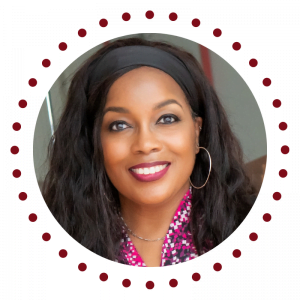
Want Karan to be Your Podcast Guest?
- Blended Workforces & the Gig Economy
- Critical Execution Tactics of High-performing Leaders
- Entrepreneurism & Leading Your Business

Want to be a Podcast Sponsor?
All sponsorships come with a featured spot on show notes pages.
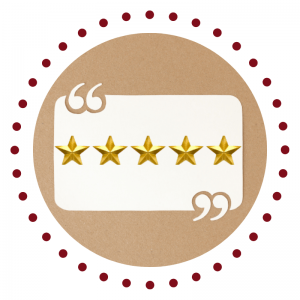
Like the Show? Please Leave a Review
If you like the show, it would mean the world to her if you left a quick review.
Your word is golden, so a HUGE thank you in advance!

#KeepInTouch
via our podcast alerts
Subscribe now to discover why thousands of monthly listeners who are passionate about doing their best work prioritize time each week to listen to the Blended Workforces @Work podcast.
#AboutSDL
#WhereToFindUs
MAILING
4480-H South Cobb Drive
PMB 219
Smyrna, GA 30080
PHYSICAL
2121 NewMarket Parkway
Ste. 108
Marietta, GA 30067
#ContactOptions
Customer Service Email:
service@shockinglydifferent.com
Call or Text:
770-384-1103
#Office Hours
MON-FRI
8:30 AM – 6:30 PM
Weekends By Appointment

